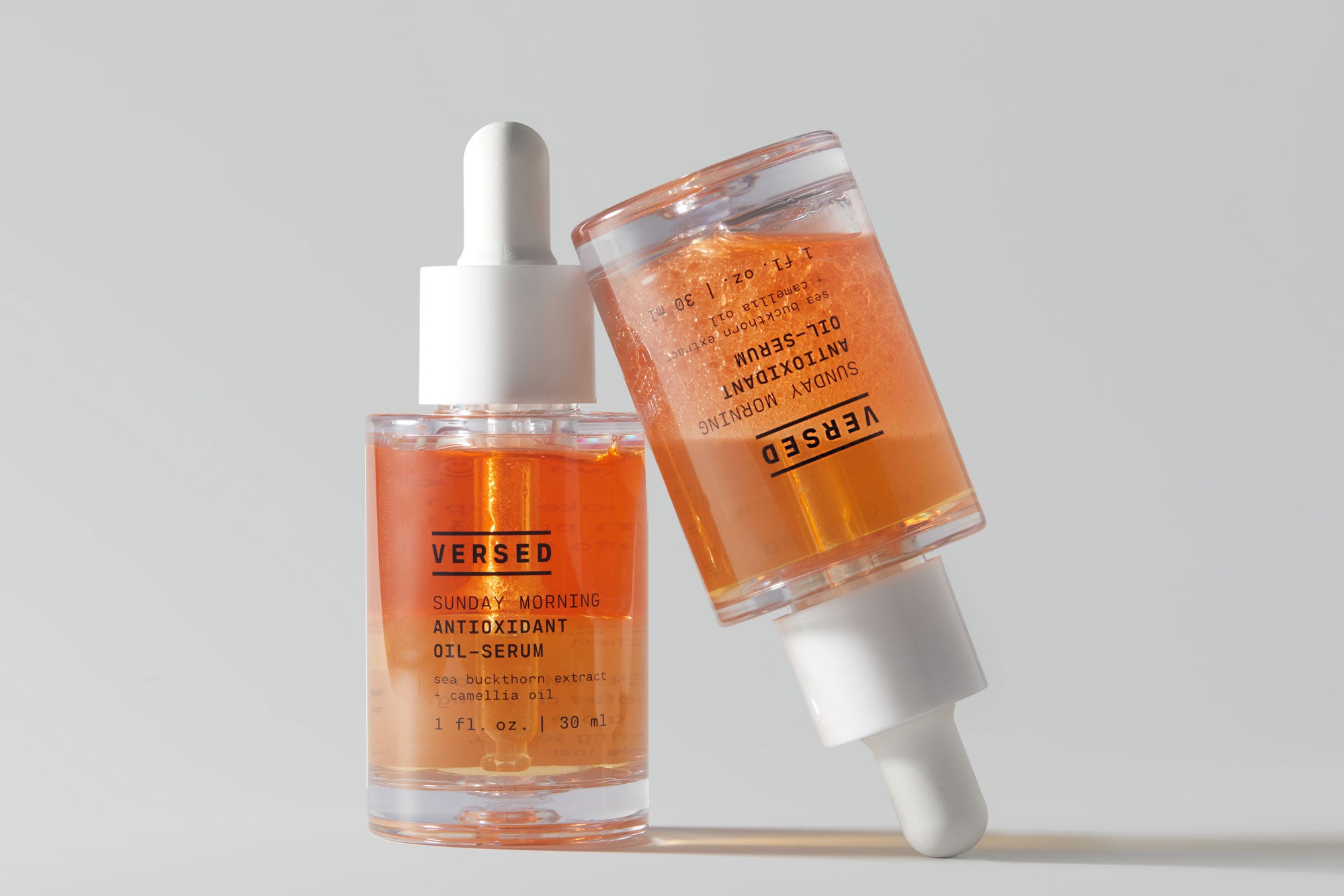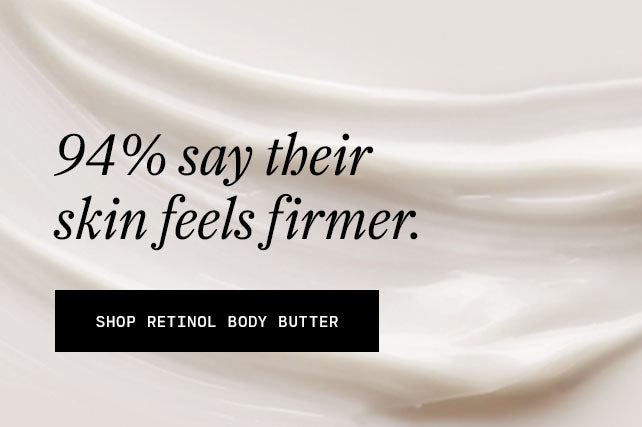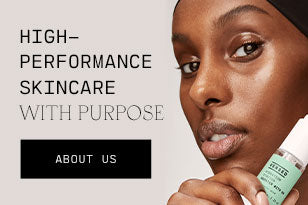
Why You Should Consider Creating a Vegan Beauty Routine
While many think of "going vegan" as a shift in diet, veganism can encompass many other parts of our lifestyle, including our beauty routine. It may sound strange to think of our skincare products and makeup as being animal-based but, believe it or not, many brands do source their ingredients from animals and animal byproducts. And because every brand sources their ingredients differently, it can be tricky to distinguish between what's vegan and what isn't.
The benefits of eating vegan extend to shopping vegan, too. While vegan skincare doesn't necessarily equal all-natural or clean, it is typically better for the environment while providing similar skin results to non-vegan formulas. If you're just getting started with veganism and looking to make the switch, read our complete guide to building a vegan beauty routine.
What Makes a Beauty Product Vegan?
While there aren’t actual animal parts bottled into your beauty products, it’s common for cosmetics companies to use animal-based ingredients in their formulas. This can mean an ingredient was extracted from animal parts (like tissues and joints) or is a byproduct (such as honey).Reminder: vegan and cruelty-free aren’t the same thing. A product can be free of animal byproducts but still be tested on animals. To ensure your products are not tested on animals, look for labels that say “Cruelty-Free” or products featuring the Leaping Bunny logo (an internationally-recognized certification that confirms a product is not tested on animals). Products that are certified by Leaping Bunny are vetted (and re-vetted annually) at every level—from product development to the skincare ingredient suppliers—to ensure it's 100% cruelty-free.
The Benefits of a Vegan Beauty Routine
The practices used to derive animal byproducts aren’t always necessarily harmful to animals. That being said, every ingredient sourced (whether it be animal-based on plant-derived) has an impact on the planet. At the rate the beauty industry creates products, we are depleting nonrenewable sources that cannot be replaced, wiping out entire species and damaging ecosystems. That's not to mention the effect it has on our climate. A study by the University of Oxford found that veganism can reduce our carbon footprint by up to 73%. Non-vegan formulas can also contribute to pollution and deforestation, too. Choosing vegan products means you’re being mindful of the creatures we share our planet with, and the impact that sourcing animal byproducts can have on our environment.If you're worried about results, just know that vegan ingredients can be just as effective as non-vegan ones when it comes to skincare and makeup. It all comes down to finding the best vegan ingredients for your skin type and goals.
Vegan Alternatives to Common Skincare Ingredients
It can be a little surprising to realize just how many ingredients are derived from animals. Here’s a quick primer on non-vegan ingredients commonly used in skincare and makeup and which alternatives to look for instead.Collagen
Use instead: plant-based collagen or microalgae
Collagen is a protein found in human hair, skin, bones, and nails, and is the single most abundant protein across the entire animal kingdom. Collagen and collagen peptides are typically found in firming creams and other products for aging skin, as they are meant to promote collagen regeneration. But when you see collagen listed in one of your moisturizers or serums, it’s typically derived from the hides and connective tissue from cows or fish. We use a plant-based collagen alternative (from the seeds of the St. John’s Bread tree) in our Hydrating Plumping Mask that acts like the real deal to smooth texture, increase elasticity (a very important part of maintaining that youthful bounce in skin), and help prevent moisture loss.
You can also opt for microalgae, which has an amino acid profile similar to collagen, for a similar effect. Find it in our dreamy Advanced Night Cream.
Beeswax
Use instead: soy, candelilla, or carnauba wax
Probably the most obvious of all animal byproducts (after all, “bee” is in the name), beeswax is used as a thickener and typically found in creams, balms, lipsticks, and foundations. Look for products with soy, candelilla, or carnauba wax as a base for balms and lipsticks instead.
Lanolin
Use instead: jojoba oil or camellia oilLanolin is a greasy substance that is extracted from the wool of sheep (specifically from their oil glands) and is typically used as an emollient in moisturizing products and lip care. Though taking lanolin from sheep’s wool isn’t harmful to sheep, other practices within the wool industry are. Instead, look for products with vitamin E and natural, botanical oils to get the same moisturizing effects as lanolin. Our Silk Slip Conditioning Lip Oil is completely lanolin-, petroleum-, and mineral oil-free. Only good oils (like nourishing jojoba and camellia) on your lips.
Gelatin
Use instead: agar or carageenan
Gelatin is a fatty protein in animals, a byproduct taken from the skin, tissue, and bones of animals like cows and pigs. It’s used as a thickener in face creams, body lotions, shampoos, masks, and sunscreens. Agar and carrageenan are both derived from seaweed and have the same thickening properties as gelatin, making them a great vegan alternative.
Squalene
Use instead: squalaneSqualene is a super hydrator that also helps reduce wrinkles and fight free radicals. It occurs naturally in our skin as part of our natural moisture barrier, but it decreases as we age. Sharks also happen to carry squalene in the oils found in their livers, and unfortunately skincare products containing squalene are often sourced from them. Squalane, however, acts the same way and as effectively as the squalene in our bodies, is said to be more stable, and best of all comes from plants. Find plant-derived squalane in Skin Soak Rich Moisture Cream, a deeply moisturizing yet non-greasy cream.
Hyaluronic Acid
Use instead: synthetic hyaluronic acid
The good news first: hyaluronic acid can be synthetically and safely formulated in a lab. Hyaluronic acid occurs naturally in our skin and connective tissue, and is known for its ability to hold hydration in the skin (it holds 1,000 times it weight in water). Unfortunately, HA can also be derived from the umbilical cords and fluids in the joints of cows and horses. The HA we used in all of our products is safely formulated in a lab and is 100% vegan.
Guanine
Use instead: ethically sourced mica
Guanine is a crystalline compound taken from fish scales and is used in many skincare and makeup products because its pearly essence gives off a subtle shimmer. We love a good light-reflecting, imperfection-diffusing action as much as the next person, but we get that from ethically sourced mica. Find it in our Luminizing Glow Drops and Smoothing Eye Cream, which both creates a sheer, subtle luminosity.
All Versed products are vegan, cruelty-free, and Leaping Bunny-certified. Shop some of our favorites below.






